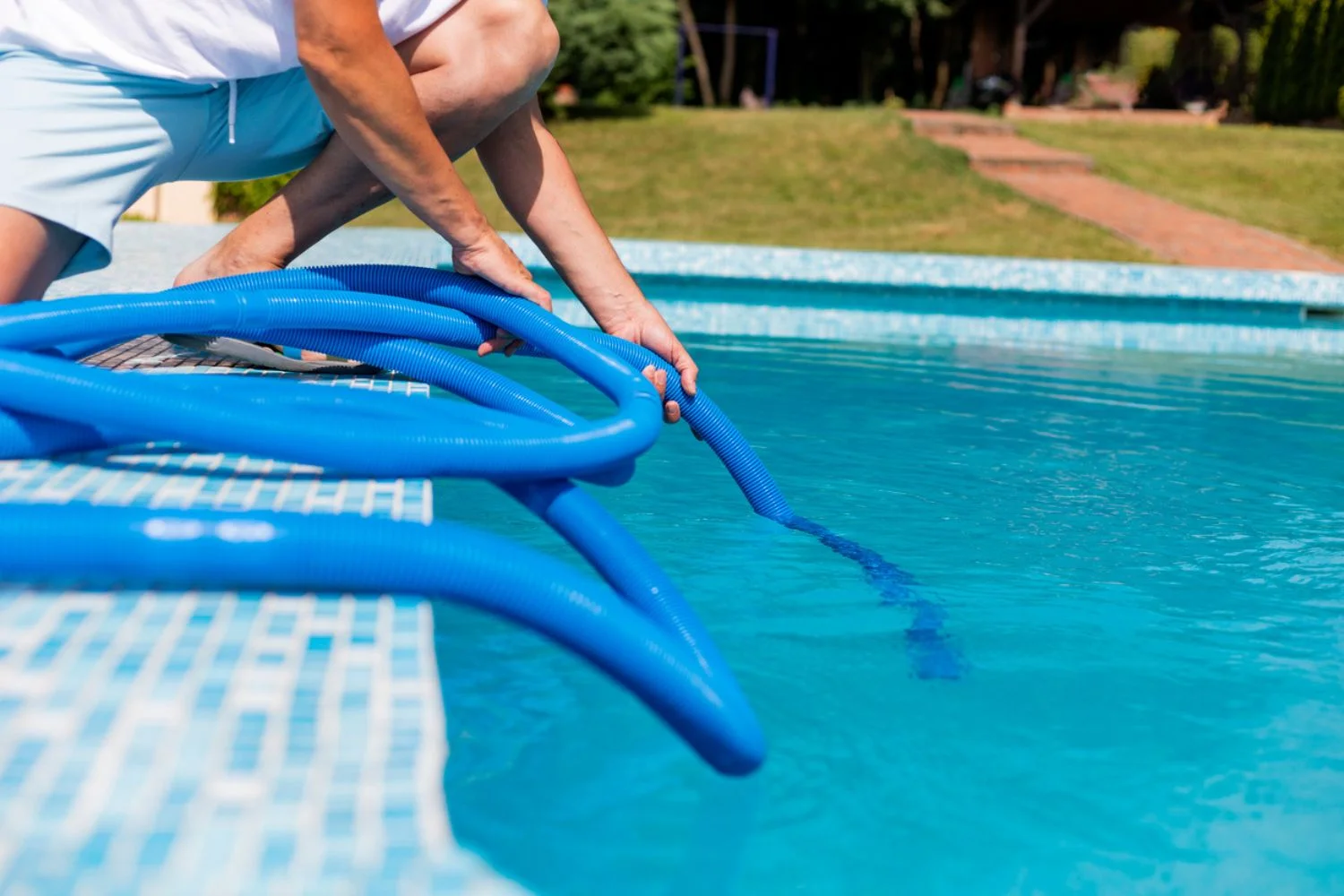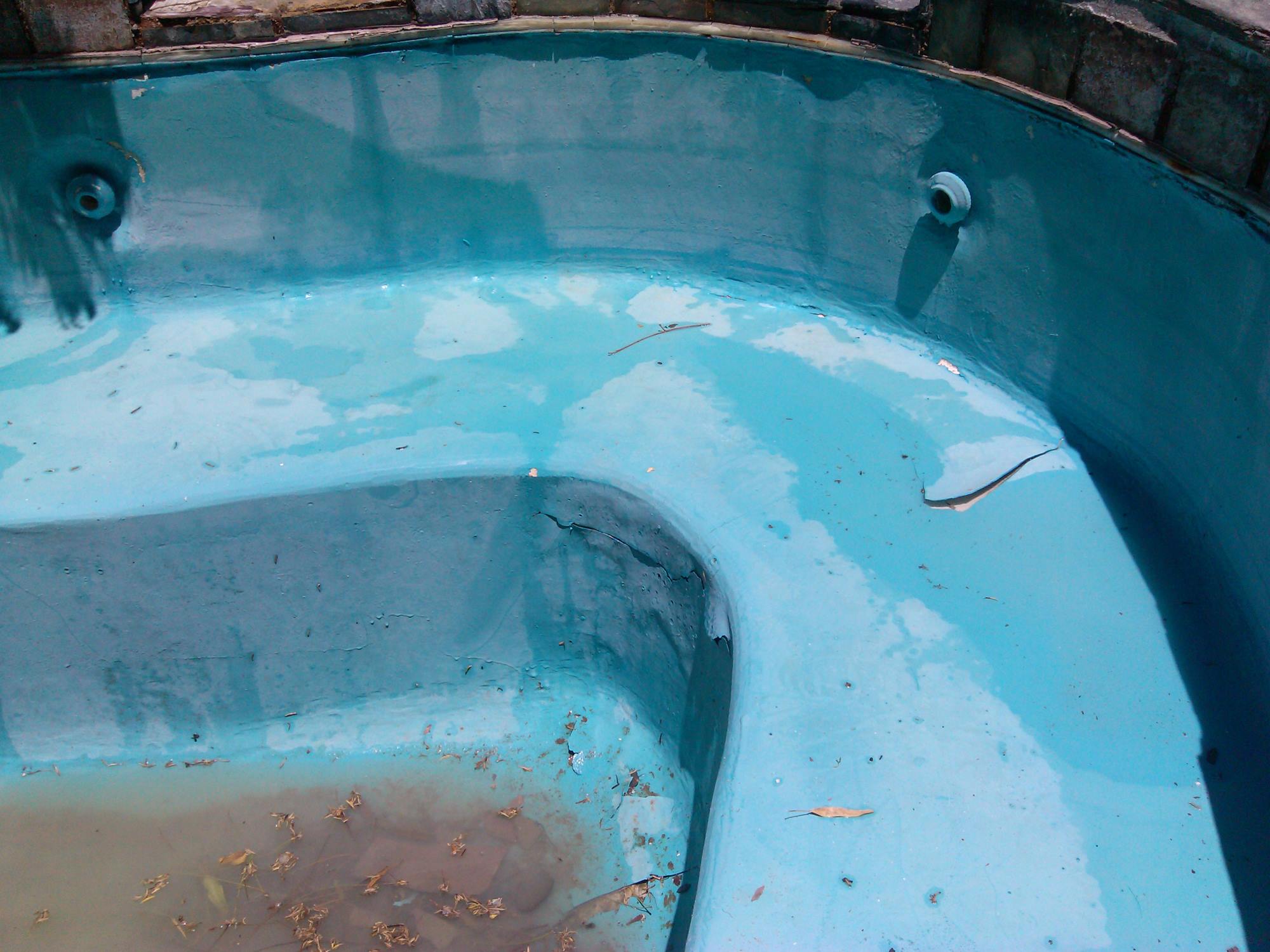Home>Gardening & Outdoor>Outdoor Recreation & Activities>How To Start A Swimming Pool Business


Outdoor Recreation & Activities
How To Start A Swimming Pool Business
Published: February 18, 2024
Learn how to start a successful swimming pool business in the outdoor recreation and activities industry. Discover essential tips and strategies for launching and growing your venture.
(Many of the links in this article redirect to a specific reviewed product. Your purchase of these products through affiliate links helps to generate commission for Storables.com, at no extra cost. Learn more)
Research and Planning
Before diving into the world of swimming pool business, thorough research and meticulous planning are essential for laying a strong foundation. This initial phase sets the stage for a successful venture and helps in navigating potential challenges. Here's a comprehensive guide to the key aspects of research and planning:
-
Market Analysis: Begin by conducting a comprehensive market analysis to understand the demand for swimming pool services in your target area. Identify the demographics of potential customers, including their age, income level, and lifestyle preferences. This insight will guide your business strategy and marketing efforts.
-
Competitor Research: Analyze existing swimming pool businesses in the area to gain insights into their offerings, pricing, and customer base. Understanding the competitive landscape will help you identify gaps in the market that your business can fill, setting you apart from the competition.
-
Business Model: Define your business model, whether it's a full-service pool maintenance company, a pool construction firm, or a combination of services. Determine the unique selling points that will differentiate your business and attract customers.
-
Regulatory Requirements: Research the local and state regulations pertaining to swimming pool businesses. This includes obtaining the necessary permits, adhering to safety standards, and understanding zoning laws. Compliance with regulations is crucial for the legal operation of your business.
-
Financial Projections: Develop detailed financial projections, including startup costs, operational expenses, and revenue forecasts. This will help you determine the initial investment required and set realistic financial goals for the business.
-
Risk Assessment: Identify potential risks and challenges that your business may face, such as seasonality, weather-related disruptions, or economic factors. Formulate contingency plans to mitigate these risks and ensure the long-term sustainability of your business.
By investing time and effort into thorough research and planning, you can position your swimming pool business for long-term success and growth. This foundational phase forms the bedrock of your business, providing clarity and direction as you embark on this exciting entrepreneurial journey.
Key Takeaways:
- Thorough research, planning, and compliance with regulations are crucial for starting a successful swimming pool business. Understanding the market, competitors, and financial projections sets the foundation for long-term success.
- Prioritizing customer satisfaction, safety, and maintenance is key in running a thriving swimming pool business. Personalized interactions, prompt issue resolution, and consistent facility upkeep create a welcoming and secure environment for patrons.
Read more: How To Start A Construction Business
Legal and Financial Considerations
When establishing a swimming pool business, navigating the legal and financial landscape is paramount to ensure compliance and financial stability. This critical phase involves addressing various legal requirements and financial considerations that form the framework of the business. Here's a detailed exploration of the key aspects within this domain:
-
Business Structure: Selecting the appropriate legal structure for your swimming pool business is a fundamental decision. Options such as sole proprietorship, partnership, limited liability company (LLC), or corporation each have distinct implications for taxation, liability, and operational flexibility. Consulting with a legal professional or accountant can provide valuable insights into choosing the most suitable structure for your specific circumstances.
-
Permits and Licensing: Prior to commencing operations, it is essential to secure the necessary permits and licenses for your swimming pool business. This typically includes health permits, construction permits for pool installations, and business licenses. Compliance with local, state, and federal regulations is non-negotiable and ensures the legitimacy of your business operations.
-
Insurance Coverage: Mitigating potential risks through comprehensive insurance coverage is a critical aspect of the financial strategy for a swimming pool business. Liability insurance, property insurance, and workers' compensation insurance are among the essential types of coverage to safeguard against unforeseen events and protect the business from financial liabilities.
-
Financial Management: Establishing robust financial management practices is vital for the long-term viability of the business. This includes setting up a dedicated business bank account, implementing accounting systems, and maintaining meticulous financial records. Clear financial visibility enables informed decision-making and facilitates compliance with tax obligations.
-
Tax Obligations: Understanding the tax obligations specific to swimming pool businesses is imperative. This encompasses sales tax, payroll tax, and income tax responsibilities. Engaging with a qualified tax professional can provide valuable guidance in navigating the complexities of tax compliance and optimizing tax efficiency.
-
Capital Investment and Funding: Assessing the initial capital investment required to launch and sustain the business is a foundational financial consideration. Whether self-funding, seeking loans, or exploring investment partnerships, determining the most viable funding approach is crucial for realizing the business vision and achieving sustainable growth.
By meticulously addressing the legal and financial considerations outlined above, aspiring entrepreneurs can establish a solid operational framework for their swimming pool business. This proactive approach not only ensures compliance with regulatory requirements but also lays the groundwork for financial stability and long-term success.
Location and Facilities
Selecting an optimal location and establishing suitable facilities are pivotal factors in the success of a swimming pool business. The strategic choice of location and the design of facilities significantly influence accessibility, customer experience, and operational efficiency. Here's an in-depth exploration of the key considerations within this domain:
Location Selection
The process of choosing the right location for your swimming pool business involves a comprehensive evaluation of various factors. Accessibility, demographic profile, and proximity to residential areas are crucial determinants. A location with high visibility and easy accessibility can enhance the business's visibility and attract potential customers. Additionally, analyzing the demographic composition of the area, including population density and income levels, provides valuable insights into the target customer base.
Facility Design and Amenities
The design and amenities of the swimming pool facility play a pivotal role in shaping the customer experience and differentiating the business from competitors. The layout should be optimized for safety, functionality, and aesthetic appeal. Incorporating diverse amenities such as changing rooms, showers, and recreational areas can enhance the overall customer satisfaction and attract a broader clientele. Furthermore, the inclusion of eco-friendly features, such as energy-efficient equipment and sustainable water management systems, aligns with contemporary environmental consciousness and can be a unique selling point for the business.
Read more: How To Start A Furniture Business
Regulatory Compliance and Safety Standards
Adhering to regulatory requirements and safety standards is non-negotiable in the establishment of swimming pool facilities. This encompasses compliance with health and safety regulations, water quality standards, and accessibility guidelines. Ensuring that the facility meets or exceeds these standards not only fosters a safe and secure environment for patrons but also demonstrates the business's commitment to ethical and responsible operations.
Environmental Considerations
Incorporating environmentally sustainable practices in the design and operation of swimming pool facilities is increasingly important in today's conscientious consumer landscape. Implementing energy-efficient heating and filtration systems, utilizing eco-friendly cleaning products, and minimizing water wastage through advanced filtration technologies are integral aspects of environmentally responsible facility management.
Scalability and Future Expansion
Anticipating future growth and scalability is essential when selecting a location and designing facilities. Evaluating the potential for expansion, diversification of services, and accommodating increased customer demand enables proactive planning for the business's long-term viability and growth.
By meticulously addressing the location selection and facility design considerations outlined above, entrepreneurs can establish a compelling and customer-centric swimming pool business. This strategic approach not only enhances the business's competitive edge but also fosters a positive and memorable experience for patrons, laying the groundwork for sustained success and growth.
Equipment and Supplies
The efficient operation of a swimming pool business hinges on the strategic selection of equipment and supplies that facilitate seamless maintenance, enhance customer experience, and uphold safety standards. From essential maintenance tools to recreational amenities, the comprehensive provisioning of equipment and supplies forms the backbone of the business. Here's an in-depth exploration of the key considerations within this domain:
Read more: How To Start A Picnic Business
Maintenance Equipment
Investing in high-quality maintenance equipment is paramount for ensuring the pristine condition and optimal functionality of swimming pool facilities. Essential tools such as pool skimmers, brushes, vacuum cleaners, and leaf nets are indispensable for routine cleaning and debris removal. Additionally, the inclusion of water testing kits, pH balancers, and chemical dispensers enables meticulous water quality management, ensuring a safe and hygienic swimming environment for patrons.
Safety Gear and Compliance Tools
Prioritizing safety is non-negotiable in the operation of a swimming pool business. Equipping the facility with safety gear such as life rings, reaching poles, and first aid kits is essential for addressing potential emergencies and upholding safety protocols. Furthermore, compliance tools including pool depth markers, safety signs, and anti-slip flooring contribute to a secure and regulated swimming environment, aligning with regulatory requirements and customer expectations.
Recreational Amenities
Enhancing the customer experience through the provision of recreational amenities is a key differentiator for swimming pool businesses. This encompasses the inclusion of poolside furniture, umbrellas, and loungers to create a comfortable and inviting atmosphere for patrons. Additionally, the integration of water features such as slides, fountains, and interactive play structures adds an element of fun and entertainment, catering to diverse customer preferences and enhancing the overall appeal of the facility.
Energy-Efficient Equipment
Incorporating energy-efficient equipment such as variable-speed pumps, LED lighting, and solar heating systems aligns with contemporary sustainability initiatives and contributes to operational cost savings. Energy-efficient solutions not only reduce the environmental footprint of the business but also resonate with environmentally conscious patrons, positioning the business as a responsible and forward-thinking entity within the community.
Read more: How To Start An Insulation Business
Supplier Partnerships and Inventory Management
Establishing reliable partnerships with reputable suppliers of pool equipment and supplies is instrumental in ensuring consistent access to quality products. Implementing effective inventory management practices, including regular stock assessments and streamlined procurement processes, facilitates operational efficiency and minimizes disruptions in service delivery. Moreover, negotiating favorable terms with suppliers and optimizing inventory levels contributes to cost control and financial sustainability.
By meticulously addressing the equipment and supplies considerations outlined above, swimming pool businesses can establish a well-equipped and customer-centric operational framework. This proactive approach not only enhances the operational efficiency and safety of the facility but also elevates the overall customer experience, fostering loyalty and positive word-of-mouth within the community.
Hiring and Training Staff
The process of hiring and training staff for a swimming pool business is a pivotal aspect that directly influences the quality of customer service, operational efficiency, and overall business reputation. From recruiting competent personnel to providing comprehensive training, every step in this domain contributes to the establishment of a skilled and customer-focused workforce. Here's an in-depth exploration of the key considerations within this critical phase:
Recruitment and Selection
The recruitment process for a swimming pool business should prioritize individuals with a strong work ethic, excellent communication skills, and a customer-centric mindset. Whether hiring lifeguards, maintenance technicians, or customer service representatives, seeking candidates with relevant experience and certifications in lifeguarding, pool maintenance, or hospitality can significantly enhance the quality of service delivery. Additionally, evaluating candidates' ability to work effectively in a team, remain composed under pressure, and adhere to safety protocols is essential for ensuring a cohesive and reliable workforce.
Comprehensive Training Programs
Implementing comprehensive training programs is essential for equipping staff with the necessary skills and knowledge to excel in their roles. Training should encompass safety protocols, emergency response procedures, customer service best practices, and technical skills specific to pool maintenance and operation. Providing ongoing training and skill development opportunities not only enhances employee competence but also fosters a culture of continuous improvement and professional growth within the organization.
Read more: How To Start A Woodworking Business
Emphasis on Safety and Compliance
Prioritizing safety and compliance in the training of pool staff is paramount for upholding the highest standards of operational integrity. Training modules should focus on lifeguarding techniques, CPR and first aid certification, as well as regulatory compliance related to pool maintenance and water quality management. Ensuring that staff members are well-versed in safety protocols and legal requirements instills confidence in patrons and demonstrates the business's commitment to a secure and regulated swimming environment.
Customer Service Excellence
Incorporating customer service training into the staff development program is instrumental in fostering a positive and welcoming atmosphere within the facility. Staff members should be trained to engage with patrons courteously, address inquiries and concerns promptly, and uphold the business's service standards. Emphasizing the importance of proactive communication and personalized customer interactions contributes to a memorable and satisfying experience for pool visitors, ultimately fostering customer loyalty and positive word-of-mouth.
Team Cohesion and Morale
Promoting a cohesive and supportive team environment through training initiatives and team-building activities is essential for nurturing a motivated and harmonious workforce. Encouraging open communication, recognizing individual contributions, and fostering a sense of collective responsibility cultivates a positive work culture that translates into enhanced service delivery and operational efficiency.
By meticulously addressing the hiring and training considerations outlined above, swimming pool businesses can establish a competent, safety-conscious, and customer-focused workforce. This proactive approach not only elevates the overall quality of service but also contributes to a positive brand reputation and sustained customer satisfaction.
Marketing and Promotion
Effective marketing and promotion are essential components of establishing a thriving swimming pool business. A strategic approach to marketing not only enhances brand visibility but also fosters customer engagement, ultimately driving business growth. Here's a comprehensive exploration of the key strategies and considerations within this pivotal domain:
-
Targeted Marketing Campaigns: Tailoring marketing campaigns to resonate with the specific needs and preferences of the target audience is paramount. This involves leveraging demographic insights to craft compelling messaging and offers that appeal to different customer segments. Whether targeting families, fitness enthusiasts, or recreational swimmers, aligning marketing efforts with the interests and aspirations of the audience enhances relevance and resonance.
-
Digital Presence and Online Marketing: Establishing a robust digital presence through a professional website, engaging social media profiles, and online listings is instrumental in reaching and engaging with potential customers. Leveraging search engine optimization (SEO) techniques, creating informative blog content, and utilizing targeted online advertising can significantly enhance the business's visibility and attract organic traffic.
-
Community Engagement and Partnerships: Actively engaging with the local community through sponsorships, partnerships with schools or community organizations, and participation in local events fosters a sense of connection and goodwill. Building a positive brand image within the community not only attracts local patrons but also cultivates a loyal customer base and positive word-of-mouth referrals.
-
Referral Programs and Customer Incentives: Implementing referral programs and customer incentives encourages existing patrons to advocate for the business and incentivizes new customer acquisition. Offering rewards for referrals, loyalty programs, and exclusive promotions for repeat customers not only drives customer retention but also amplifies the business's reach through positive referrals.
-
Visual Branding and Collateral: Investing in visually compelling branding elements, including logos, signage, and promotional materials, contributes to a strong and memorable brand identity. Consistent visual branding across various touchpoints, including the facility, marketing materials, and online platforms, reinforces brand recognition and fosters a professional and cohesive brand image.
-
Seasonal Promotions and Special Events: Capitalizing on seasonal trends and organizing special events, such as swim meets, themed pool parties, or instructional workshops, creates opportunities to attract new customers and engage with the existing patron base. Offering seasonal promotions, holiday-themed activities, and unique experiences enhances customer engagement and generates excitement around the business.
By meticulously implementing these marketing and promotion strategies, swimming pool businesses can effectively position themselves in the market, attract a diverse customer base, and foster sustained growth. This proactive approach not only enhances brand visibility and customer engagement but also contributes to the establishment of a strong and enduring market presence.
Read more: How To Tile A Swimming Pool
Customer Service and Satisfaction
Delivering exceptional customer service is the cornerstone of a successful swimming pool business. Prioritizing customer satisfaction not only fosters loyalty but also cultivates positive word-of-mouth, which is invaluable in the competitive leisure industry. Here's a comprehensive exploration of the strategies and considerations essential for elevating customer service and ensuring unparalleled satisfaction:
-
Personalized Interactions: Encouraging staff to engage with patrons on a personal level creates a welcoming and inclusive atmosphere. Greeting customers by name, remembering their preferences, and actively listening to their feedback fosters a sense of belonging and demonstrates a genuine commitment to customer care.
-
Prompt Issue Resolution: Establishing efficient protocols for addressing customer concerns and resolving issues promptly is crucial. Whether it's addressing maintenance issues, responding to inquiries, or handling complaints, a proactive and empathetic approach to problem-solving reinforces the business's dedication to customer satisfaction.
-
Clear Communication: Transparent and proactive communication with patrons regarding facility updates, special events, or operational changes is essential. Keeping customers informed fosters trust and ensures that they feel valued and engaged with the business.
-
Customer Feedback Mechanisms: Implementing structured feedback mechanisms, such as surveys, suggestion boxes, or online review platforms, provides valuable insights into customer preferences and areas for improvement. Actively soliciting and acting upon customer feedback demonstrates a commitment to continuous enhancement of the customer experience.
-
Staff Training on Service Excellence: Providing comprehensive training to staff members on delivering exceptional customer service is instrumental. Empowering employees with the skills to anticipate customer needs, handle inquiries courteously, and exceed expectations contributes to a consistently positive customer experience.
-
Consistent Facility Maintenance: Maintaining the swimming pool facility to the highest standards of cleanliness, safety, and aesthetics is integral to customer satisfaction. Regular maintenance, meticulous cleaning, and adherence to safety protocols create a welcoming and secure environment for patrons.
-
Customer-Centric Policies: Establishing customer-centric policies, such as flexible membership options, convenient operating hours, and clear pricing structures, demonstrates a commitment to accommodating customer needs and preferences.
-
Recognition and Rewards: Recognizing and rewarding loyal customers through loyalty programs, exclusive events, or special perks fosters a sense of appreciation and strengthens customer loyalty.
By meticulously implementing these customer service strategies, swimming pool businesses can create a welcoming and customer-centric environment that fosters enduring patron relationships and positive brand advocacy. This proactive approach not only enhances customer satisfaction but also positions the business as a trusted and preferred leisure destination within the community.
Maintenance and Safety Protocols
Maintenance and safety protocols are paramount in ensuring the optimal functioning of a swimming pool business while prioritizing the well-being of patrons. A comprehensive approach to maintenance and safety encompasses meticulous upkeep of the facility, adherence to regulatory standards, and proactive measures to mitigate potential risks. Here's an in-depth exploration of the key considerations within this critical domain:
Routine Maintenance
Regular maintenance of the swimming pool and its associated equipment is essential for preserving water quality, ensuring structural integrity, and upholding operational efficiency. This includes scheduled cleaning of the pool surfaces, filtration system maintenance, and inspection of mechanical components. Additionally, monitoring and balancing water chemistry parameters such as pH levels, chlorine concentration, and alkalinity are integral to sustaining a safe and hygienic swimming environment.
Safety Equipment and Signage
Equipping the facility with essential safety gear, including life rings, reaching poles, and first aid kits, is imperative for addressing potential emergencies. Clear and visible safety signage, encompassing pool depth markers, rules of conduct, and emergency contact information, enhances safety awareness among patrons and aligns with regulatory requirements. Regular inspection and maintenance of safety equipment are essential to ensure their readiness and functionality in critical situations.
Read more: How To Empty A Swimming Pool
Regulatory Compliance
Adhering to regulatory standards and compliance requirements set forth by health and safety authorities is non-negotiable. This encompasses water quality testing, adherence to pool occupancy limits, and compliance with safety and accessibility guidelines. Maintaining meticulous records of maintenance activities, water quality assessments, and regulatory inspections demonstrates a commitment to operational integrity and patron safety.
Staff Training and Emergency Response
Comprehensive training of staff members in lifeguarding techniques, CPR, and first aid is instrumental in fostering a secure and responsive environment. Conducting regular drills and simulations for emergency scenarios prepares staff to effectively handle critical situations and ensures a swift and coordinated response in the event of an emergency.
Preventive Measures
Implementing preventive measures to mitigate potential safety hazards is essential. This includes proactive measures to prevent slips and falls, regular inspection of poolside areas for hazards, and ensuring the integrity of pool barriers and enclosures. Additionally, implementing protocols for the safe handling and storage of pool chemicals minimizes the risk of accidents and chemical exposure.
By meticulously addressing maintenance and safety protocols, swimming pool businesses can establish a secure and regulated environment that prioritizes patron safety and operational integrity. This proactive approach not only fosters a positive and secure swimming experience but also reinforces the business's commitment to excellence and responsible operations.
Frequently Asked Questions about How To Start A Swimming Pool Business
Was this page helpful?
At Storables.com, we guarantee accurate and reliable information. Our content, validated by Expert Board Contributors, is crafted following stringent Editorial Policies. We're committed to providing you with well-researched, expert-backed insights for all your informational needs.










0 thoughts on “How To Start A Swimming Pool Business”